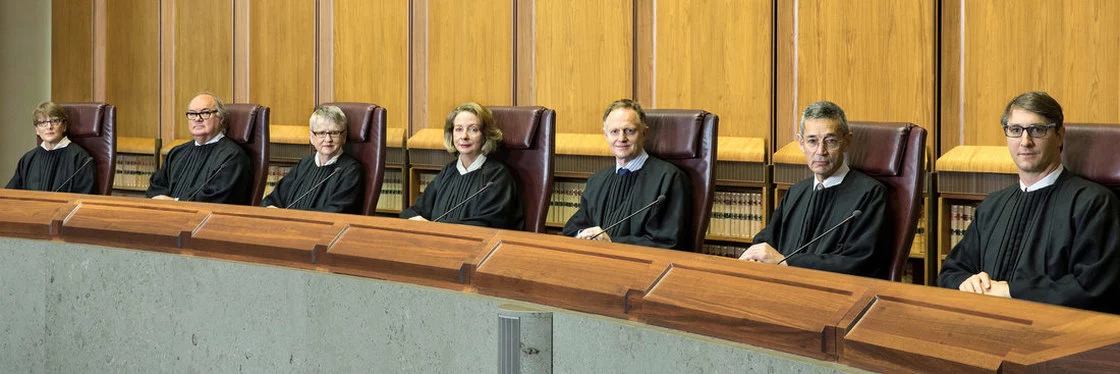Parliament cannot make laws to keep evidence from the High Court
Graham v Minister for Immigration (2017)
Facts of the case
Mr Graham and Mr Te Puia were citizens of New Zealand who had resided in Australia for 40 and 10 years respectively. The Australian Government Minister for Immigration and Border Protection, Peter Dutton, cancelled their visas using the Migration Act 1958.
This Act gave the Minister discretionary power to cancel a visa if the Minister believed that a person did not pass the “character test” and was in the national interest.
The Minister stated that in deciding the cases he had considered information which was protected from disclosure to Mr Graham and Mr Te Puia. He relied on a section of the Migration Act which stated that he could not be required to divulge this information, including to a court reviewing his decision.
The Applicants brought proceedings in the High Court seeking to have that provision declared unconstitutional.
Stop the War on Refugees Pre-Election Protest Rally, Sunday 4 Nov. 2001 held at Old Parliament House, Canberra. Source: National Library of Australia
Stop the boats – Operation Sovereign Borders
Issues considered by the court
The High Court examined whether part of the Migration Act was unconstitutional because it required a federal court to exercise judicial power in a way that was inconsistent with the essential character of a court. How can a court properly exercise its power if information is hidden from it?
It also examined whether part of the Act was unconstitutional because it limited the right of a person to seek review of decisions of Commonwealth officers under section 75(v) of the Constitution.
Decision
The Court decided that due to section 75(v) of the Constitution the Parliament cannot enact a law to prevent the High Court from enforcing limits to a Minister’s power.
The part of the Migration Act that prevented the Minister from being required to divulge information to the High Court or Federal Court was unconstitutional.
The majority concluded that the Minister’s decisions to cancel Mr Graham’s visa and Mr Te Puia’s visa was invalid.
Background to the case
Australia has a long history of controversy and public debates regarding immigration policy. In 2001 the Norwegian container ship, the MV Tampa rescued 433 asylum seekers after the boat they were on sank. The Howard Coalition Government refused to allow the Tampa to bring the asylum seekers to Christmas Island.
The tightening of Australia’s immigration laws became an election issue in 2001. The community was divided. Some Australians supported the immigration policies of the two major parties, while others came out to protest.
Over the ensuing years Australia’s immigration laws have continued to expand. Immigration Ministers have been granted greater discretionary powers to grant, refuse or cancel visas. In 2008 Labor Immigration Minister Chris Evans stated that he had too much power and felt uncomfortable about “playing God” on individual migration cases.
Under its Federal Leader Tony Abbott, the Opposition Liberal Party ran a successful election campaign in 2013, pledging to “stop the boats”.
Having stopped the boats the Turnbull Coalition Government campaigned on law and order for the 2016 election. They promised to deport non-citizens from Australia who did not pass a “character test”.
Did you know?
- Section 75(v) of the Constitution guarantees the right of a person to challenge the lawfulness of a decision of a Commonwealth Minister that affects them.
- The Graham case recognised that the Parliament cannot make laws that prevent court from receiving information about how a Minister has exercised power. The capacity of the Court to determine whether or not the legal limits of the power of the Minister were observed was restricted.
- The judgment stated: The problem…lies in the inflexibility…to withhold the information from the reviewing court irrespective of the importance of the information… Graham v Minister for Immigration (2017), per Kiefel CJ, Bell, Gageler, Keane, Nettle and Gordon JJ
- Although Mr Graham and Mr Te Puia successfully challenged the cancellation of their visas in the High Court, they were ultimately deported to New Zealand.




